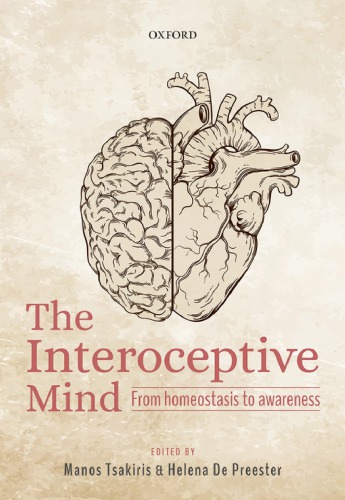

Most ebook files are in PDF format, so you can easily read them using various software such as Foxit Reader or directly on the Google Chrome browser.
Some ebook files are released by publishers in other formats such as .awz, .mobi, .epub, .fb2, etc. You may need to install specific software to read these formats on mobile/PC, such as Calibre.
Please read the tutorial at this link: https://ebookbell.com/faq
We offer FREE conversion to the popular formats you request; however, this may take some time. Therefore, right after payment, please email us, and we will try to provide the service as quickly as possible.
For some exceptional file formats or broken links (if any), please refrain from opening any disputes. Instead, email us first, and we will try to assist within a maximum of 6 hours.
EbookBell Team

4.4
62 reviewsHowever, interoception is rapidly gaining interest amongst those studying the human mind. It is believed that beyond homeostasis interoception is fundamental in understanding human emotion and motivation and their impact upon behavior. That link between interoception and self-awareness is supported by a growing body of experimental findings.
The Interoceptive Mind: From Homeostasis to Awareness offers a state-of-the-art overview of, and insights into, the role of interoception for mental life, awareness, subjectivity, affect, and cognition. Structured across three parts, this multidisciplinary volume highlights the role that interoceptive signals, and our awareness of them, play in our mental life. It considers deficits in interoceptive processing and awareness in various mental health conditions. But it also considers the equally important role of interoception for well-being, approaching interoception from both a theoretical and a philosophical perspective.
Written by leading experts in their fields, all chapters within this volume share a common concern for what it means to experience oneself, for the crucial role of emotions, and for issues of health and wellbeing. Each of those concerns is discussed on the joint basis of our bodily existence and interoception. The research presented here will undoubtedly accelerate the much-anticipated coming of age of interoceptive research in psychology, cognitive neurosciences and philosophy, making this vital reading for anyone working in those fields.